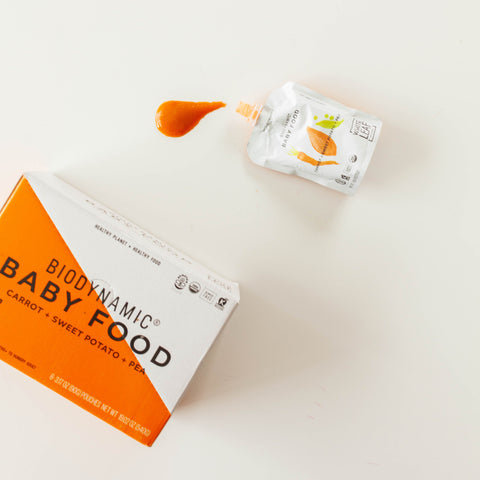Written by Hartje Andresen
During COVID-lockdown, many people have changed the way they shop for groceries; in an effort to minimize the time spent outside of our homes, a lot of us are reducing the numbers of trips to the store, buying more at once and in larger quantities than usual.
When stocking your kitchen for several days or weeks in advance, refrigerator and freezer space becomes prime real estate, so it is important to learn how to store your groceries correctly and safely. Knowing which foods need refrigeration and which ones are more likely to make you sick if handled incorrectly, can help to keep you and your family healthy and avoid a preventable trip to the doctor’s office.

Foods Stored at Room Temperature
You may be surprised that a lot of foods we routinely store in the fridge can actually be stored at room temperature. In fact, refrigeration can decrease the nutritional value of some foods by breaking down antioxidants or impact their flavor by slowing down the ripening process.
- Melons for example preserve their high levels of free-radical-fighting antioxidants best if stored whole at room temperature.
- Bananas turn brown and unsightly when stored in the fridge.
- Tomatoes and citrus fruits can be stored at room temperature as well.
- Potatoes and sweet potatoes should be stored in a dark space in a closet or pantry. This will prevent them from sprouting and keep the starch from turning into sugar.
- Bread will keep it’s taste and texture better at room temperature, while refrigeration can make it dry and stale.
- Stone fruits, Avocados and tropical fruits can be stored outside of the fridge until they have reached the desired level of ripeness.
Preserving Fruits & Vegetables
Instead of refrigerating fruits and vegetables that you are not intending to use within a few days, consider cutting them up into pieces and freezing them instead. That way they preserve their peak level of nutrients and it will be easy and convenient to use them in smoothies, stir-fries or other recipes at a later time.

Why Can Foods Make You Sick if Not Refrigerated?
If foods are stored or handled incorrectly, they can become contaminated with harmful germs - bacteria, viruses or parasites. The food may still look, smell and taste normal, but symptoms like vomiting, nausea, diarrhea, stomach cramps, fever or chills can develop within a few hours to a couple of days after eating.People with a compromised immune system, pregnant women, little children and the elderly are especially vulnerable to getting food poisoning.
-Food-poisoning bacteria grow and multiply fastest between 40 and 140 degrees Fahrenheit, so it is a good idea to be aware of foods that are especially susceptible to illness-causing bacteria and parasites.
- Raw, ground and cooked meat, dairy products, products containing egg, seafood and fish, cooked rice, grains and pasta, salads, and prepared foods should be stored in the fridge at a temperature kept just below 40 degrees Fahrenheit.
- High-risk foods should not be kept in the refrigerator door, because this is the area with the greatest fluctuation in temperature.
- Store raw and cooked foods separately from each other. Meats and eggs should be packaged securely and stored at the bottom of the fridge so that they may not contaminate other groceries in case of any leaks or drips.
- Always purchase frozen and perishable foods at the end of your grocery shopping tour and refrigerate or freeze them within two hours of being left out.
- While it is safe to store some cooked foods in the refrigerator for up to a week, raw meats should not be kept in the fridge for more than a couple of days.
- Foods that you do not intend do consume within that time frame can be frozen for later use, but it is not recommended to re-freeze something that has already been thawed once.

What Is Norovirus?
Some types of foodborne illness are caused by a virus, the most common of which is called Norovirus. While the symptoms are almost identical, an infection caused by this virus does not come from the food itself, it spreads from person to person and is highly contagious.
- To prevent Norovirus from spreading, practice good personal hygiene, wash your hands thoroughly with soap and water, especially before eating, preparing food, and after using the bathroom.
- Wash your groceries carefully and cook all ingredients at a high temperature. If you feel sick, do not prepare food and avoid contact with others, until about two or three days after you feel better.
- Most cases of food poisoning usually resolve on their own without the help of a doctor, and you will feel better within a couple of days. However, in some cases the symptoms can become more severe and need medical attention. If vomiting and diarrhea occur, drink plenty of fluids to prevent dehydration, and try to eat some bland foods like rice, toast, or apples and bananas to give your body some energy.
To avoid foodborne illnesses it is important to practice good hygiene and follow food safety and storage guidelines. Keep your hands, kitchen counter and utensils clean and cook foods containing meat, poultry, fish and eggs thoroughly before eating. Following the suggestions above will help to keep you and your family healthy and safe!
*Disclaimer: This article is intended for informative and educational purposes only and is not a substitute for professional medical advice, diagnosis or treatment. If you have any questions or concerns about your health or that of your child, please consult with your physician for advice*


